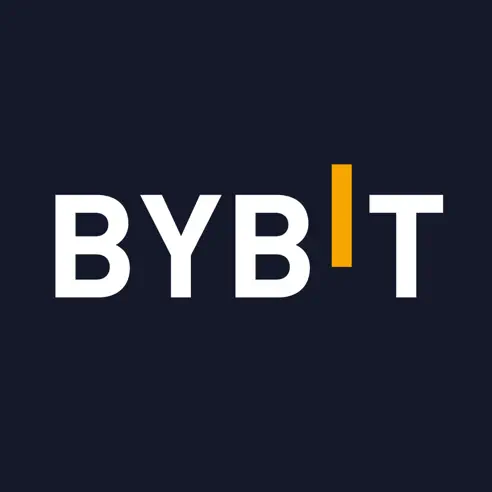S
mart contracts have completely reshaped the future as we know it. We are moving into a digitally dominant world. The blockchain has become such a powerful technology that leading companies in every industry are integrating it into their everyday work. All of this is impossible without Smart Contracts.
In this article, we will cover everything you need to know about smart contracts. Ladies and gentlemen, this is the future as we know it. Welcome.
How does a Smart Contract work?
A Smart Contract is simply a self-executing program stored on the blockchain that controls, documents or executes actions or events taking place between a buyer and seller or two different entities.
Let’s say a user goes onto a DEX built on Ethereum and the user wants to swap their ETH for MATIC tokens. The user will swap and interact with the Smart Contract built on the protocol.
Once the transaction has taken place, it is written and stored in the blockchain forever. You can always go back and see the transaction, similar to a receipt but it can never get lost…
The Smart Contract contains various codes and agreements which span across the blockchain and allows any user to facilitate transactions in a decentralised manner, without any centralised authorities.

Who Was the Creator of Smart Contracts?
The idea of the Smart Contract was invented in 1994 by a genius called, Nick Szabo who imagined a marketplace on the internet that could facilitate transactions in a secure and automatic manner, using the powers of cryptography!
It is thought by many that Nick Szabo is the original creator of Bitcoin, known as Satoshi Nakamoto. This is the largest conspiracy in the entirety of crypto and there is a high possibility that Nick Szabo is Mr Nakamoto. Although, no one can confirm nor deny…
Nonetheless, Nick Szabo is known as an absolute legend in terms of technology, innovation and definitely the beautiful world of crypto! It also goes without saying that, Ethereum actually was the blockchain that brought Smart Contracts to light!

Pros & Cons of a Smart Contract
Many ask why we need and don’t need Smart Contracts and well, there are many reasons. So let’s go through each of them, one by one:
Pros of a Smart Contract
First up, we’ll look at all the advantages (pros) of using smart contracts, before we dive into the small list of disadvantages.
Security
By far the most important is security. Any transactions conducted on the blockchain are encrypted, making it extremely difficult to hack.
How? Well, each block in a blockchain is connected to the previous and following block which means that if a hacker wants to alter a specific block (transaction), he would have to change the entire network. To sum it up, it’s unrealistic!
Transparency & Anonymity
One cannot manipulate a smart contract. All transactions are recorded and never deleted. Smart contracts allow people to interact and come to agreements with the ability of full anonymity.
Speed & Costs
Cutting out middlemen and unnecessary third parties will save us a fortune! Thanks to smart contracts, we can avoid any of these leeches and utilise something that is virtually free, extremely quick and hassle-free!
Automation
By skipping the middlemen and using smart contracts, they also guarantee automated finality. Smart contracts run all year round, 24/7! It’s as simple as interacting with the smart contract and clicking approve, smart contracts will do all the work for you!
Efficiency
Smart contracts are praised for being efficient and that is why blockchains are being adopted worldwide. Let’s start with the fact that smart contracts cannot make any errors. No one has to physically watch out for errors or vulnerabilities on the smart contract. It is all done automatically.
Cons of a Smart Contract
Clearly, smart contracts have many important advantages and will become adopted by every industry worldwide. However, everything has its disadvantages, but it’s needless to say that there are very few!
Malicious contracts
Sadly, in the world of DeFi, people are able to launch smart contracts with ease on blockchains such as Ethereum, BNB Chain, Avalanche and so on. With this ability, those who know how can create malicious smart contracts, where if a user interacts with it, it will automatically drain their assets from their wallet.
Not good, to say the least. It is extremely important to proceed with caution when interacting with a smart contract.
Flexibility
Sadly, one big hurdle for smart contracts is the insufficiency of being flexible. Once a smart contract has been set, it’s set in stone. You cannot make any changes, therefore, making it aggravating for the parties involved.
While there are probably more cons to smart contracts, these are probably the largest issues worth raising.
Companies Using Blockchain Technology
We are now entering the phase of global crypto adoption and there is evidence of that from the major companies that utilise smart contracts and blockchain technology.
Here is a short list of many companies that know the true power of Smart Contracts:

Microsoft
One of the leading tech companies, Microsoft has made its statement by integrating and partnering with protocols such as Enjin (ENJ), Space and Time and even Aptos which is a major blockchain!

IBM
A company that makes over $60B in revenue annually is heavily invested in blockchain technology. One example is the partnership between IBM and Sonoco which are fighting to reduce the issues in the transport of lifesaving medications. Their plan is to increase the overall supply chain transparency!

Amazon
Amazon Web Services has shot its web in the world of crypto. They have partnered with major blockchains such as Ethereum, Hedera Hashgraph, Ava Labs, Quorum and more! If Amazon is using blockchain technology, surely that is one massive green flag being held up!
So many companies are discovering the incredible capabilities of smart contracts and soon, there will be no choice but to use blockchain technology and smart contracts!

Conclusion
Smart Contracts and blockchain technology protect us from the worst industry in the world, the banks who have complete control over our assets and dictate how we spend/use our money. The entire world will save so much time and money, just by interacting with a smart contract instead of a greed-driven third party…
Industries such as real estate agents will come to an end. People will be able to list their house for sale on an NFT Housing marketplace, where the only interaction needed is with a smart contract. This will alleviate the ridiculous estate agent fees and more…
Since the release of the Smart Contract programme, many supporting coding languages have come to fruition. Blockchain developers use different coding languages depending on their preferences or network. E.g. Solidity + Ethereum, Rust + Solana.















